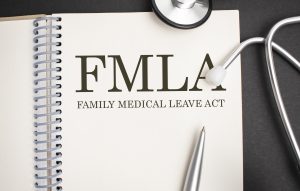If you’re like most Americans, you’ve probably heard of the Family Medical Leave Act (often known as FMLA), but you might not know what it is or how it protects employees.
A federal statute called the FMLA was passed to aid workers in juggling their job and family responsibilities. Fundamentally, the law permits workers to take time off to take care of family members or to heal from a major sickness or injury. Although this rule covers a wide range of situations, not all employers are compelled to abide by it, and not all employees are given protection. What you should know about FLMA as an employee is listed below.
Not all employers or workers are covered
Only employers who had at least 50 employees for at least 20 weeks in the prior year or the current year were obligated to abide by the FMLA’s regulations. Smaller businesses are therefore exempt from this rule. Nevertheless, they might offer comparable leave in accordance with state law.
You might not be protected by the law even though your company is required to provide FMLA. An employee must have worked for their employer for at least a year and at least 1,250 hours in the previous year in order to qualify for FMLA.
Limited and unpaid leave
Employees may only use the FMLA for very specified reasons; it cannot be used for any reason. To care for a family member who is ill or injured, to spend time with a new kid, or if you have a serious health problem. Some military family leave, such as leave to handle the practical issues connected with a family member being called to active duty, is also covered under FMLA.
Employees are permitted to take up to 12 weeks of unpaid time off per calendar year, or up to 26 weeks, in order to care for a family member who became ill or injured while serving in the armed forces. It’s important to note that this form of leave can only be utilized once per family member or injury and is not renewable. While employees may be paid during this leave by using accrued sick or paid time off, FMLA leave is often unpaid.
You can utilize your leave in increments of a few hours or days, or for longer lengths of time, rather than having to use it all at once. This might be required in cases where you don’t need to take the full 12 weeks off or leave all at once, such as when you need to take a family member to a doctor’s appointment or for medical treatment.
Workers must follow notice and paperwork requirements
Employees must inform their employer of any scheduled leaves as soon as is practical. If the need for absence is unexpected and cannot be anticipated (such as a planned surgery), you must give as much notice as is reasonably possible.
If your employer requests it, you must additionally give them medical certification in addition to the required notice. This could come from the hospital or the doctor who is attending to you or a member of your family. If certification is required, you’ll probably need to return it within 15 days.
You are entitled to certain FMLA benefits
You may continue to use your employer’s health insurance while on leave, but you may have to cover your portion of the premium. With a few exceptions, your employer must also reinstate you to the same or a comparable job when you resume employment.
Contact PLBH right away at (800) 435-7542 for a legal consultation or info@plblaw.com if you think your employer has violated your FMLA rights. We are skilled and sympathetic employment law attorneys, and we will fight to defend your legal rights.

